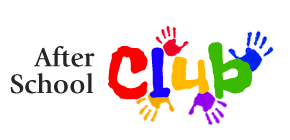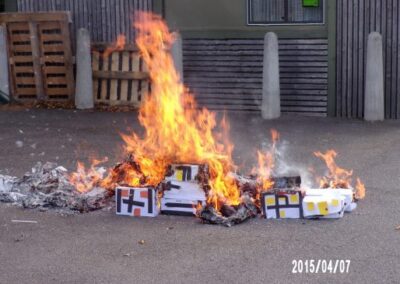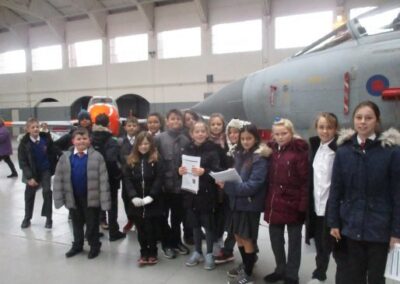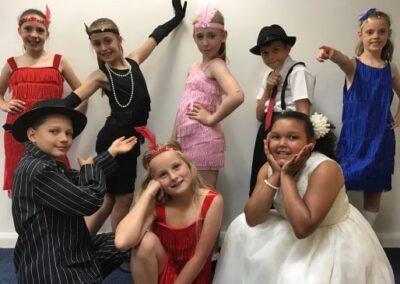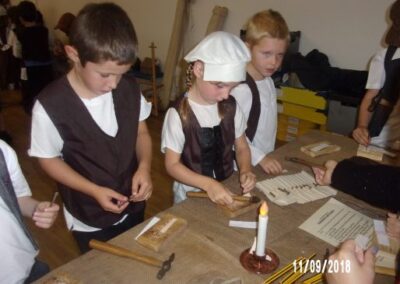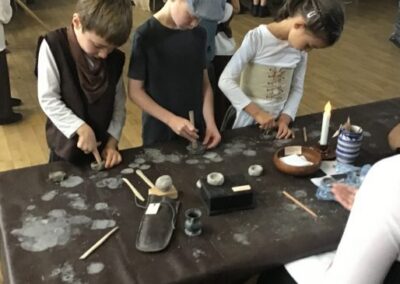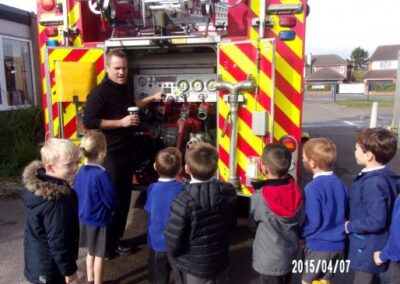Upcoming School events
Reception and Year 6 NCMP Visit
Reception and Year 6 NCMP Visit
Humanities
History Intent:
The History Curriculum at Cogenhoe is designed so that children develop history knowledge and understanding of historical periods within their long-term memories. A wide breadth of topics are covered in an engaging way to explore key concepts. These concepts are: investigate and interpret the past; build an overview of world history; understand chronology and communicate historically.
We consider the background of our pupils to give them appropriate and ambitious curriculum opportunities. We use and explore local history to give children a deeper awareness and understanding of where they are from. Our “Project Conquer” celebrates Northampton’s shoe industry past and enables our pupils to leave our school feeling proud of where they come from and have an appreciation of its impact and importance on our lives today.
Cognitive science tells us that working memory is limited and cognitive load is too high if we rush children through content; therefore, we belive and ensure that our children are able to master the basics first.
History Implementation:
We use the Chris Quigley Curriculum Companion which organises the breadth of study for each year group with a focus on specific knowledge categories.
Learning is most effective with spaced repetition; each year progresses on the previous, enabling children to gain historical perspective by placing their growing knowledge into different contexts. Retrieval of previously learnt content is a frequent and regular feature of all history lessons.
The learning is brought to life by the use of drama, real artefacts , exploration and visitors.
History Impact:
Learning is a change in long term memory, therefore it is impossible to see impact in the short term. Through POP tasks, our children move through basic, advancing and deep understanding of the knowledge categories. Children complete POP tasks (proof of progress) at the end of a micro-topic (knowledge web) to show their learning. Through repetition of the key concepts, children connect topics together and revisit knowledge categories in many ways. Children connect knowledge and build an understanding of the history of Britain and the wider world.
Geography Intent:
The Geography Curriculum at Cogenhoe is designed so that children develop Geography knowledge and transfer this into their long term memories. Our curriculum drivers shape our curriculum breadth and are derived from an exploration of the backgrounds of our pupils, our beliefs about high-quality education and our values. We offer a structured sequence of quality lessons, helping children to fully cover the skills required to meet the aims of the National Curriculum and to encourage excellence. The content allows for a broad, deep understanding of geography, and the children will link and compare their learning to their own lives. Through weaving in prior learning, the geography curriculum offers a range of opportunities for consolidation, challenge, variety and awe and wonder. This allows children to apply the fundamental principles and concepts of geography across the curriculum and beyond. They develop an understanding of the world in which they live and develop skills that allow them to research into and investigate what they would like to know. Children will leave our school prepared for life beyond Cogenhoe.
All of our classroom based learning is further enhanced by our “Stunning Starts”, “Fabulous Finishes” and memorable trips and visits which help to bring our History curriculum to life!
Geography Implementation: Learning is a change in long term memory, therefore it is impossible to see impact in the short term. Through POP tasks, our children move through basic, advancing and deep understanding of the knowledge categories. Children complete POP tasks (proof of progress) at the end of a micro-topic (knowledge web) to show their learning. Through repetition of the key concepts, children connect topics together and revisit knowledge categories in many ways. Children connect knowledge and build an understanding of the geography of Europe and the world.
Lessons consist of the revisiting and reviewing of prior knowledge. Direct teaching of new skills, vocabulary and knowledge is presented in small, manageable steps (embracing Rosenshine’s Principles of Instruction). Through the careful sequencing of lessons, we intend to inspire pupils, to develop a love, understanding and respect of the world and see its place in their future. Cross-curricular links are also important in supporting other areas of learning. Our lesson plans and resources help children to build on prior knowledge at the same time as introducing new skills and challenges. A thematic approach is used in every year group with some topics primarily focusing on geography.
In Key Stage 1 our topics are: Bright lights, Big City, Down Under, Wild Weather, Capital Cities and Treasure Hunters. Across all topics, they learn using the knowledge categories: location, physical features, human features, diversity, physical processes, human processes and geographical techniques. All these skills are built upon in Key Stage 2, where the children learn about Europe in more detail as well as trade. Our other topics in Key Stage 2 include: Climate Change and transportation, Deadly Disasters, Land Detectives, South America, North America and Biomes. Where possible, fieldwork and first hand experiences will be used to enhance learning.
Geography Impact:
Learning is a change in long-term memory, therefore it is impossible to see impact in the short term. However, POP tasks and subject leaders’ monitoring will show whether practices are appropriate and likely to produce results in the long term. Children will use geographical vocabulary accurately, alongside a demonstration of their development of the key concepts. They will be confident in locating different regions of the world and able to talk about the physical and human geography of these areas, using their own skills to research and then present their findings. Children will use a range of tools to carry out investigations, complemented by fieldwork (where possible), to develop their understanding. Children will use their learning to consider issues in their local area and the U.K. extending this thought process to regions across Europe and the whole planet. The reinforcement of key concepts and vocabulary in each topic as well as year-on-year will allow children to take this knowledge with them to secondary school and beyond. Children will be geographical thinkers who care for the planet. Children will enjoy learning in Geography.

